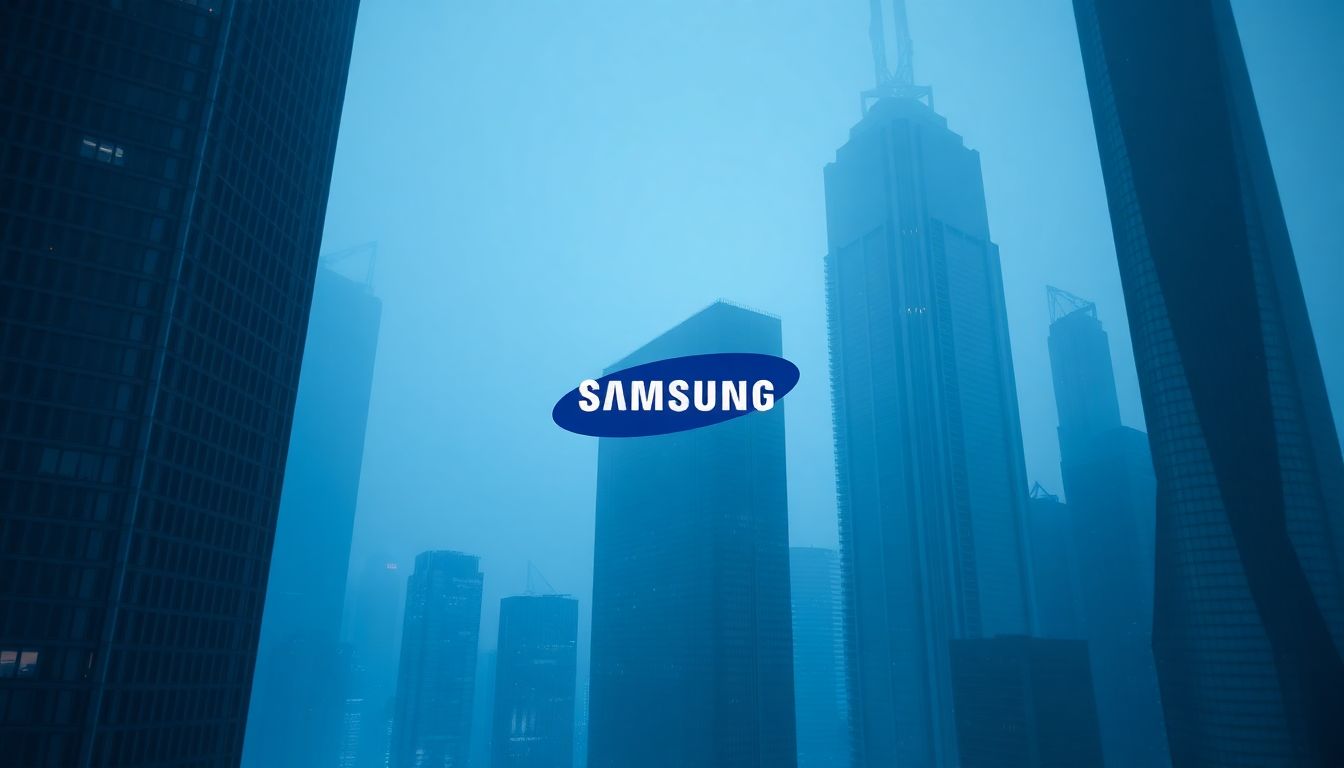Samsung's Chip Division Stumbles in the High-Stakes AI Memory Market

The demand for AI memory chips has skyrocketed, sending shockwaves through the semiconductor industry. Companies worldwide scramble to secure their place in this lucrative market. Samsung, once a dominant player in the chip sector, now faces unforeseen challenges that threaten its stronghold.
Despite investing heavily, Samsung's memory chip division encounters hurdles in the fiercely competitive AI landscape. This situation raises questions about the sustainability of its strategy amid a rapidly changing environment.
Samsung's Investments and Expectations
Samsung has poured billions into the AI memory chip market. They've recognized the growth potential and want to be a leader. However, the expectations associated with this investment are lofty, leading to increased pressure on the company.
- Financial commitment: Reports suggest Samsung invested around $17 billion over the past two years to boost its AI chip capabilities.
- Projected market share: Analysts had predicted Samsung would capture over 30% of the AI memory market by 2025.
- Competitive landscape: When compared to competitors like Micron and SK Hynix, Samsung's strategy appears ambitious. Micron has emphasized innovative approaches to reduce costs, while SK Hynix focuses on research in specialized AI architecture.
Market Challenges and Competitive Pressures
The semiconductor market is now a battlefield, with various competitors vying for supremacy. Increased competition, especially from emerging Chinese manufacturers, poses a significant threat to Samsung's aspirations.
- Chinese manufacturers: Companies like Yangtze Memory Technologies have entered the field, offering competitive pricing that undercuts established players.
- Geopolitical influences: Trade tensions and restrictions have added layers of complexity to the global chip supply chain, making it difficult for Samsung to maintain its operations seamlessly.
- Demand fluctuations: With AI technology still evolving, the demand for specific memory chips can be volatile. This variability can lead to inventory challenges and impact profitability.
Technological Hurdles and Innovation Gaps
Samsung has made strides in AI memory chip production, yet hurdles remain. Technological advancement is key in this fast-paced market, where innovation can dictate success.
- Technological advancements: Samsung has introduced new production processes aimed at enhancing efficiency and performance.
- Scaling challenges: Meeting the growing demand for AI chips requires not just innovation but also the capability to produce at scale—an area where Samsung often faces bottlenecks.
- R&D improvements: There's a need for a more focused R&D approach to identify and expedite breakthroughs in AI technology.
Financial Performance and Stock Market Reaction
Recent financial reports paint a mixed picture for Samsung's chip division. While the company remains a heavyweight, its struggles within the AI sector have made investors wary.
- Financial reports: A quarter-over-quarter decline in chip sales raised alarms. Samsung reported a 15% drop, primarily due to stiff competition and market saturation.
- Investor confidence: As challenges mount, investor sentiment has shifted. The recent earnings call saw analysts questioning the company's AI chip strategy.
- Stock market response: Samsung's shares saw a dip following news of lagging sales, reflecting growing concerns about its position in the AI chip race.
Future Outlook and Strategic Adjustments
Looking forward, the AI memory chip market is expected to grow, but the landscape will remain competitive. Samsung needs to adjust its strategies to regain its footing.
- Market trajectory: Analysts predict continual growth in AI applications, suggesting an expanding market for memory chips.
- Strategic adjustments: Samsung could benefit from diversifying its investments toward cutting-edge technologies and partnerships with AI firms to enhance innovation.
- Investor strategies: For investors, maintaining a close watch on Samsung’s adaptation to market changes could provide insights into potential recovery or further challenges.
Navigating the Uncertainties of the AI Chip Landscape
Samsung's chip division faces significant challenges as it navigates the complexities of the AI memory market. With competition intensifying and demand fluctuating, the company must adapt swiftly.
The AI memory landscape is vital for the broader semiconductor industry, impacting various sectors. Samsung's future within this arena hinges on its ability to innovate and respond to dynamic market conditions. As the race continues, only time will reveal if Samsung can reclaim its status as a leader in the AI memory chip sector.






No comments: